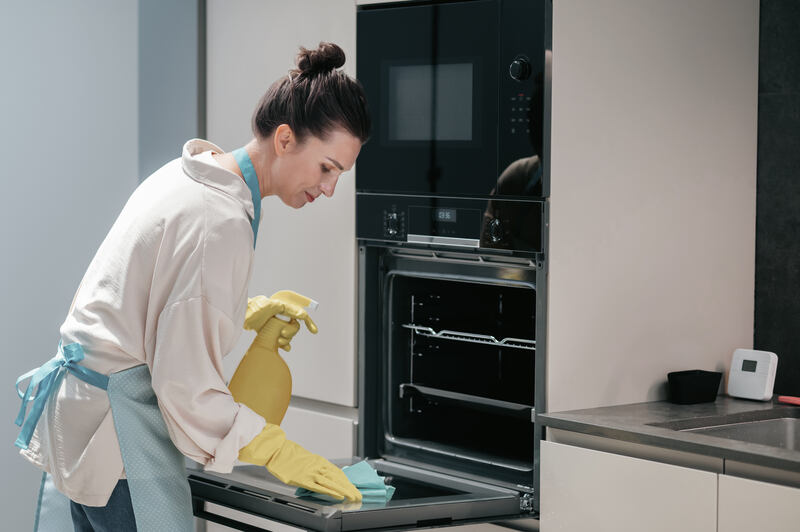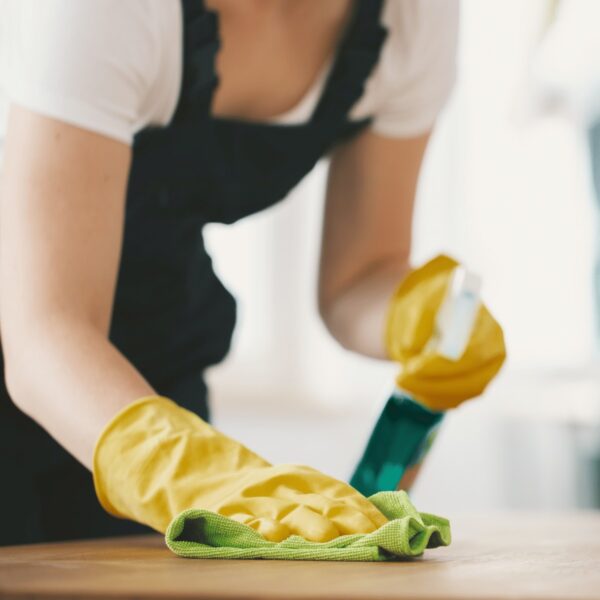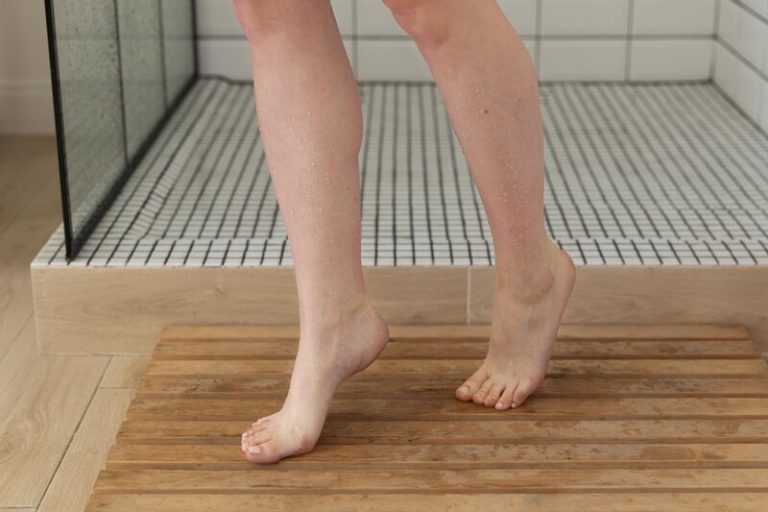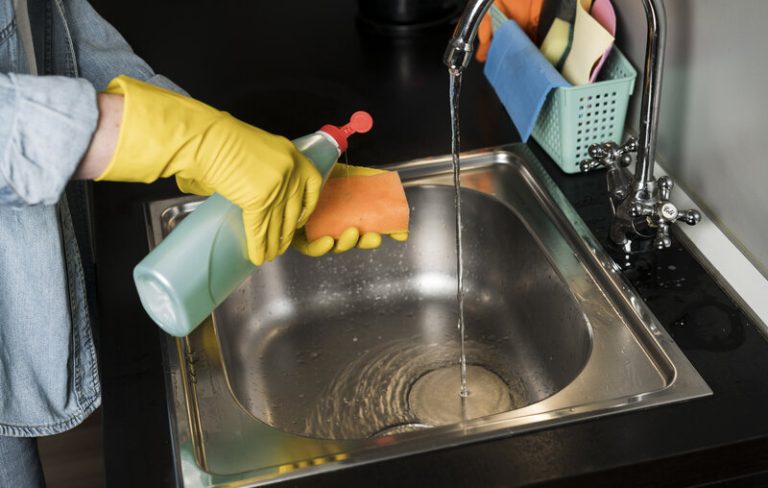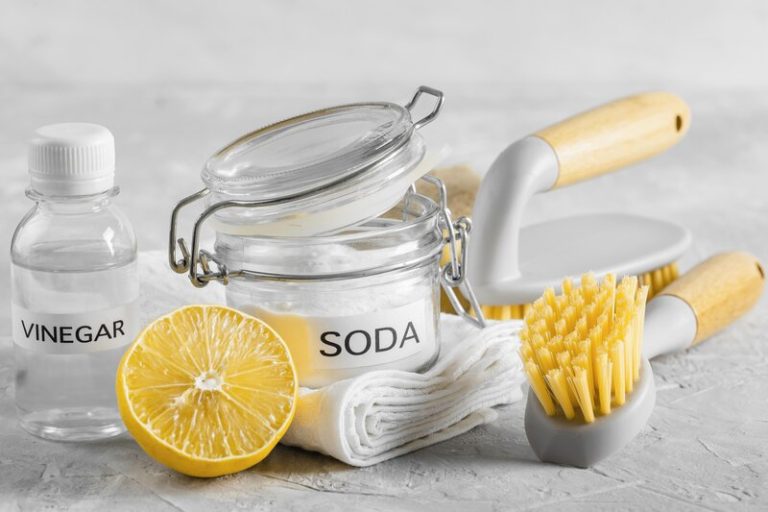Are you wondering why it’s important to clean your oven regularly? Not only does it prolong the lifespan of your appliance, but it also enhances the taste of your food and prevents potential fire hazards. Then, how often should you clean your oven?
In this article, we will discuss factors to consider and recommended frequencies. Also, we will explore the different methods of cleaning an oven, the best cleaning products to use, and provide a step-by-step guide for a sparkling clean oven. Let’s dive in!
The Importance of Oven Cleaning
Before we get into how often you should clean your oven, first get to know the importance of this activity. Basically, maintaining a clean oven is crucial for several reasons, including:
a. Prolongs the Lifespan of Your Oven
Regularly cleaning your oven can significantly extend its lifespan, preventing the build-up of grease, grime, and food residues that can lead to mechanical issues and reduced efficiency over time.
When grease and food residue accumulate on the oven’s components, such as the heating elements and fan, they can not only affect the taste of your food but also pose a fire hazard. By keeping these parts clean through regular maintenance, you can avoid costly repairs and ensure safe operation.
A clean oven operates more efficiently, reducing energy consumption and ultimately saving you money on utility bills. Proper maintenance not only enhances the oven’s performance but also contributes to a healthier cooking environment, free from potential contaminants.
b. Improves the Taste of Your Food
A clean oven not only ensures the hygiene of your cooking environment but also enhances the flavour of your dishes by eliminating any burnt residues or odours that can affect the taste of your food.
When your oven is free from grease buildup and food spills, your meals can truly shine in terms of both taste and presentation. By maintaining a clean oven, you allow the natural flavours of your ingredients to come through without any unwanted charred notes.
This attention to cleanliness also prevents cross-contamination between different dishes, ensuring each recipe reaches its full potential. With a well-maintained oven, you can have consistent cooking results, as the heat distribution remains optimal throughout the cooking process.
c. Prevents Potential Fire Hazards
Regular oven cleaning is a critical safety measure as it reduces the risk of fire hazards caused by the accumulation of flammable grease and food particles inside the appliance.
When grease and food residue build up in the oven, they can easily catch fire during the cooking process, leading to dangerous situations that put both property and lives at risk.
Prevention is key when it comes to maintaining a safe kitchen environment. By regularly cleaning your oven, you not only ensure efficient cooking performance but also mitigate the potential for devastating fires. Neglecting this essential task can result in dire consequences, making it imperative to prioritise oven maintenance as part of your overall household safety practices.
How Often Should You Clean Your Oven?
Basically, there is no definitive answer to how often you should clean your oven. This is because determining the frequency of oven cleaning depends on various factors, such as:
a. Factors to Consider
When deciding how often you should clean your oven, consider factors like the frequency of use, the types of food cooked, spillage occurrences, and the manufacturer’s recommendations for maintenance.
Frequency of use plays a significant role; for instance, if you use it daily for heavy baking or roasting, more frequent cleaning might be necessary to prevent grease buildup.
The types of food cooked are essential too – greasy foods may lead to more residue. Watch spillages as they can contribute to odours and soiling. Checking the manufacturer’s guidelines is crucial; they often provide insights on the ideal cleaning schedule specific to the oven model you own.
b. Recommended Frequency
Whilst the recommended frequency of oven cleaning may vary, a general guideline is to perform a thorough clean every three to six months, with regular maintenance in between to ensure hygiene and efficiency.
Regularly cleaning your oven not only helps maintain its cleanliness but also enhances its performance and extends its lifespan. Investing time in wiping down spills immediately after use can prevent them from building up and becoming tough stains.
Creating a cleaning schedule can assist in staying on track with maintenance tasks and ensuring that your oven functions optimally. Using natural cleaning agents like baking soda and vinegar can be effective in removing grease and grime without harsh chemicals.
Different Methods of Cleaning an Oven
There are multiple approaches to cleaning an oven, ranging from using self-cleaning functions in modern appliances to manual cleaning methods that involve natural or commercial cleaning products. Here’s the full explanation:
a. Self-Cleaning Ovens
Self-cleaning ovens are equipped with a high-temperature cycle that incinerates food residues into ash, making it easier to wipe off once the cleaning process is complete.
During the self-cleaning process, the oven locks automatically to prevent accidents and reaches temperatures around 900 degrees Fahrenheit, turning grease and grime into ash. This not only saves the time and effort required for manual scrubbing but also eliminates the need for harsh chemical cleaners, making it more environmentally friendly.
It’s essential to remove larger food particles before activating the self-cleaning feature to prevent any unpleasant odours or smoke.
b. Manual Cleaning
Manual cleaning methods involve using natural solutions like vinegar and bicarbonate of soda or commercial oven cleaners to scrub and remove stubborn grease and grime from the oven surfaces.
For a thorough manual oven cleaning, start by removing the oven shelves to gain better access. Then, create a paste of bicarbonate of soda and water, apply it to the interior surfaces, and let it sit overnight to break down the grime.
Next, use a damp cloth to wipe away the bicarbonate soda mixture, tackling the grease and dirt as you go. For tough spots, a mixture of water and white vinegar sprayed onto the stains can help loosen them.
Always remember to wear protective gloves and ensure proper ventilation during the cleaning process.
Best Cleaning Products to Use for Your Oven
Selecting the right cleaning products for your oven is crucial to ensure effective grease removal and overall cleanliness. Both natural solutions and commercial cleaners have their advantages based on the cleaning requirements. Find out more below.
a. Natural Cleaning Solutions
Natural cleaning solutions such as vinegar, bicarbonate soda, and lemon juice are effective and eco-friendly options for removing grease and grime from your oven without harsh chemicals.
These ingredients not only help protect the environment by reducing the use of harmful substances, but they also provide a safer alternative for your family and pets.
Using DIY recipes with simple pantry staples like vinegar and bicarbonate of soda can save you money and reduce your exposure to synthetic chemicals. Plus, the natural acidity in lemon juice can cut through tough stains and leave a fresh, citrus scent in your kitchen.
b. Commercial Oven Cleaners
Commercial oven cleaners offer powerful formulas designed to tackle tough stains and baked-on residues efficiently, providing a convenient solution for deep cleaning your oven.
These cleaners are typically formulated with chemical agents that break down grease and grime, making it easier to wipe away stubborn residues. It is important to follow the manufacturer’s instructions carefully to ensure proper usage and safety.
While these cleaners are effective in removing tough stains, it is essential to take necessary precautions when using them. Make sure the oven is completely cooled before applying the cleaner, and always wear protective gloves and ensure adequate ventilation.
For those looking for a safer alternative, there are eco-friendly oven cleaners available that use natural ingredients without compromising on cleaning power. It’s important to consider the environmental impact of the products you choose.
Step-by-Step Guide to Cleaning Your Oven
Follow this comprehensive step-by-step guide to effectively clean your oven, ensuring a hygienic cooking environment and optimal appliance performance.
a. Preparation
Preparing your oven for cleaning is essential and involves gathering the necessary supplies, ensuring proper ventilation, and taking necessary safety precautions before beginning the cleaning process.
One crucial step is to remove all racks and trays from the oven to have unrestricted access. Properly cleaning the removable parts separately can make the overall cleaning process more effective. Ensuring that the oven is cool before starting the cleaning process is vital to avoid burns or injuries.
- It is recommended to wear gloves and protective eyewear to protect yourself from cleaning chemicals.
- Use natural cleaning solutions like vinegar and bicarbonate of soda for a safer and eco-friendly option.
Having a good-quality oven cleaner on hand can help to tackle tough grease and grime effectively. Open windows or turn on the ventilation fan to ensure proper airflow during the cleaning process.
b. Cleaning Process
The cleaning process entails applying the chosen cleaning solution, scrubbing away dirt and grime, and utilising appropriate techniques to ensure thorough cleanliness inside your oven.
After applying the cleaning solution, let it sit for at least 15-20 minutes to break down tough stains and grease build-up.
Next, use a damp cloth or sponge to scrub the surfaces, focusing on areas with visible dirt or residue.
For stubborn stains and baked-on grime, create a paste using bicarbonate of soda and water, applying it to problem spots before scrubbing.
Rinse the oven interior thoroughly with a clean, damp cloth or sponge to remove any remaining cleaning solution residue. Dry the surfaces completely with a soft, dry cloth to prevent water spots and streaks.
c. Post-Cleaning Maintenance
After cleaning your oven, proper maintenance is key to preserving the cleanliness and efficiency of the appliance, including regular inspections, minor touch-ups, and preventive measures to avoid future build-up.
Post-cleaning maintenance plays a vital role in ensuring that your oven continues to work optimally and remains in top condition for a long time. One essential aspect of maintenance is to regularly check the oven seals for any signs of wear and tear, as these can impact the overall performance. Regularly removing any food crumbs or spills that may accumulate inside the oven can prevent them from turning into stubborn stains or causing unpleasant odours.
To maintain the exterior of your oven, wipe it down with a damp cloth and mild detergent to remove any grease or grime. This not only keeps your oven looking clean but also prevents the accumulation of dirt that can affect its efficiency. Scheduling professional servicing at least once a year can help identify any potential issues early on and ensure that your oven is running smoothly.
Tips for Maintaining a Clean Oven
Implement these practical tips to maintain a clean oven effortlessly, ensuring long-term hygiene, performance, and safety in your kitchen.
Regularly check the oven seals for any signs of wear or damage that may affect its efficiency in maintaining the desired temperature. Clean up spills promptly to prevent them from hardening and becoming difficult to remove. Utilise oven liners to keep the oven bottom clean and protect it from spills and residue. Ensure proper ventilation to prevent the accumulation of grease and dirt, which can lead to unpleasant odours and potential fire hazards.
Now you know how often you should clean your oven. Regular cleaning is crucial not just for the efficiency and longevity of your appliance, but also for maintaining the quality and safety of the food you prepare, whether at home or in a professional setting.
If maintaining your oven’s cleanliness feels overwhelming amidst your busy schedule, why not let the experts take care of it? TEKA Cleaning offers specialised cleaning services tailored to your needs.
Our house cleaning services can help homeowners keep their kitchens pristine, while our commercial cleaning solutions are perfect for F&B and restaurant owners who need to ensure their equipment meets the highest hygiene standards.
Don’t wait for the grime to build up. Book a cleaning session with TEKA Cleaning today or give us a call at 01233 751 544. Let us take care of the dirty work, so you can enjoy a cleaner, safer kitchen without the hassle. Whether you’re baking at home or cooking up a storm in a commercial kitchen, TEKA Cleaning has you covered.
Read also:







